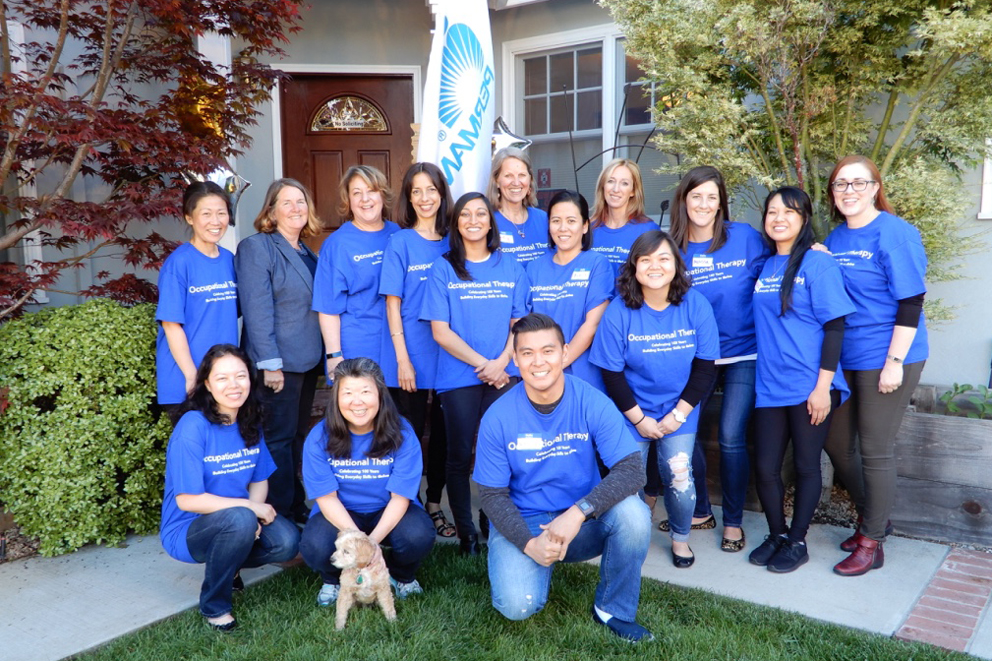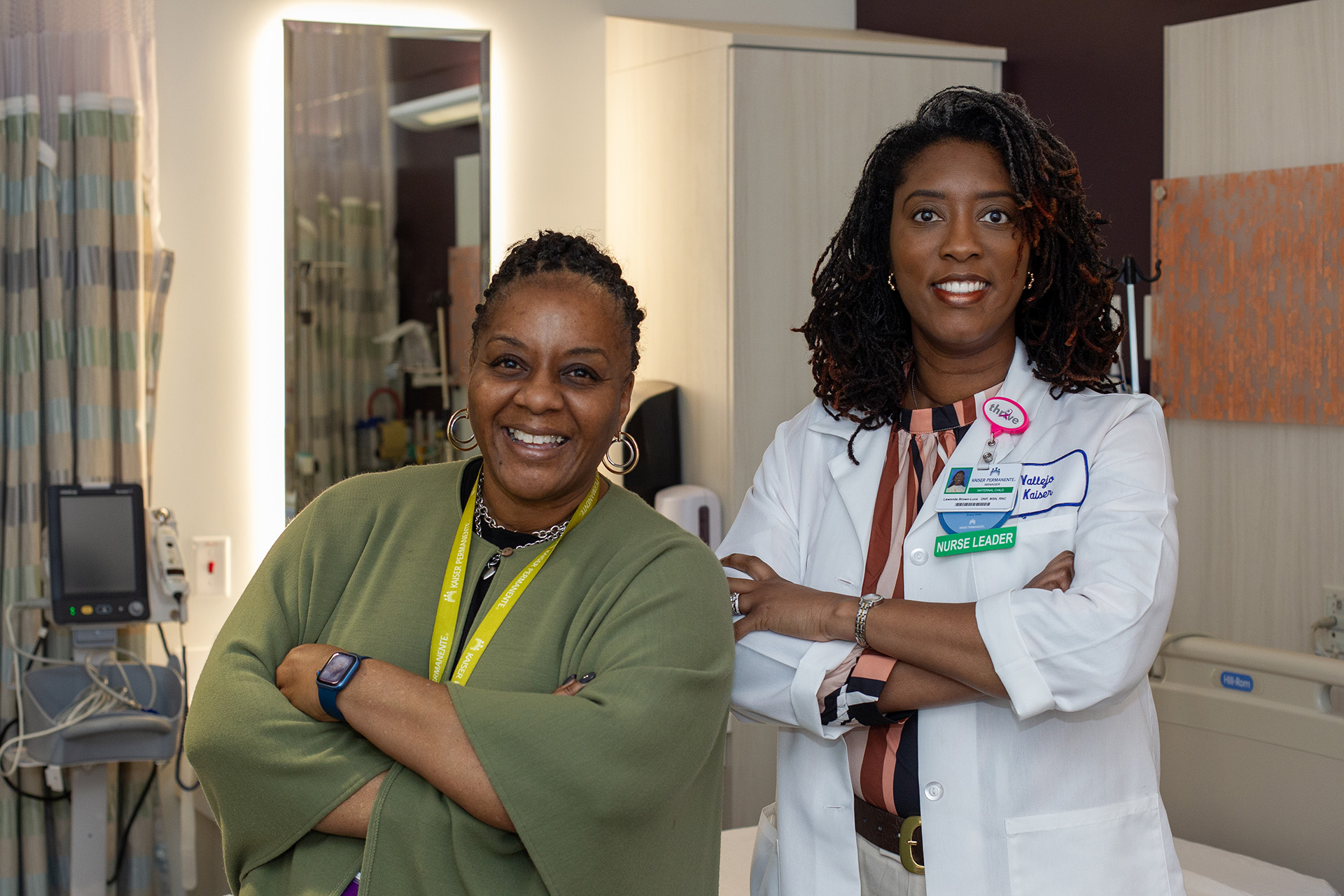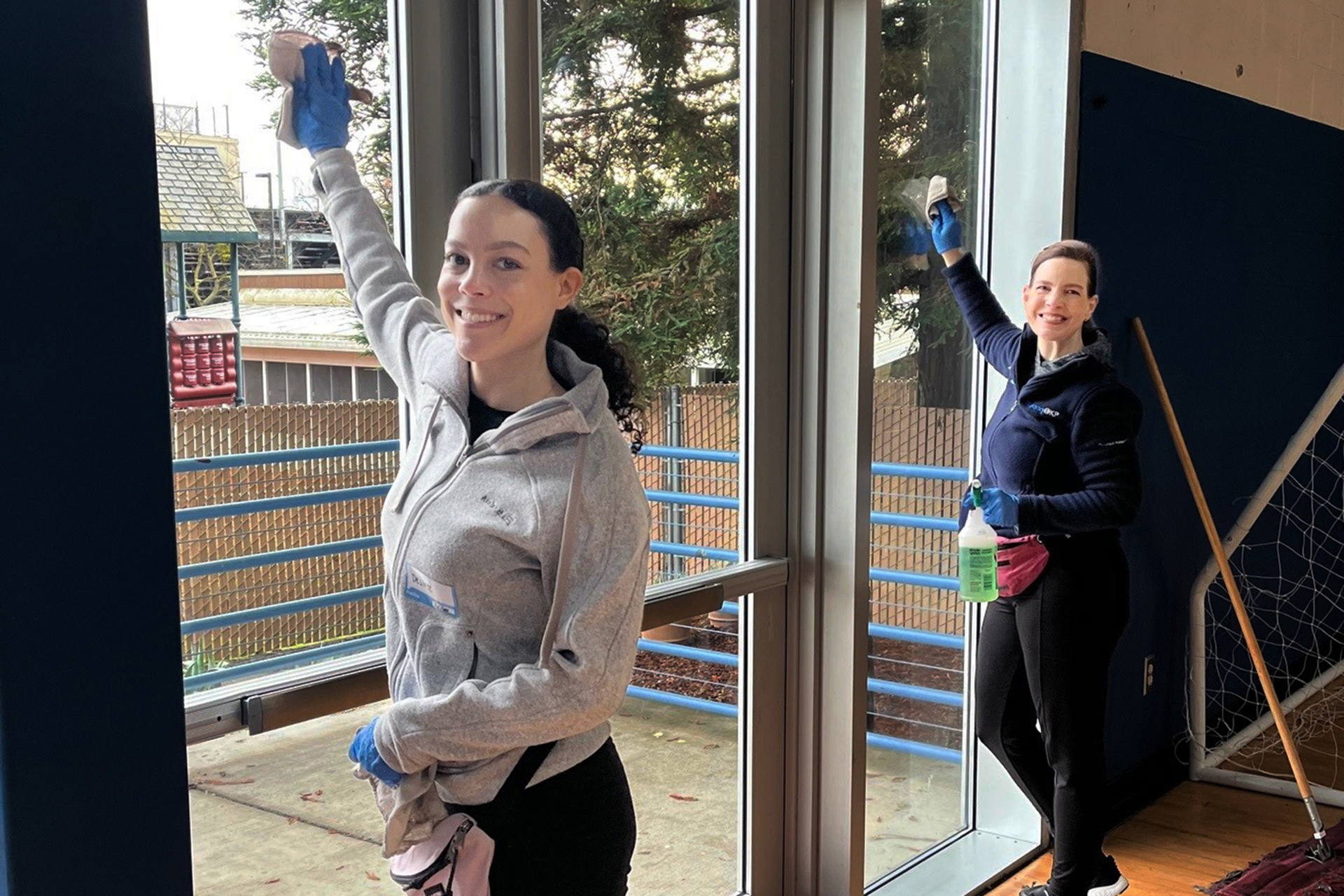As the Occupational Therapy profession turns 100 this month, Jeannette Nakamura, MA, OTR/L, shares more about the field and its transformational benefits. Pictured above, Nakamura, first row in the middle, poses with the Northern California Kaiser Permanente Occupational Therapy Network.
When I was a kid, I loved watching Marcus Welby, MD, a series about a friendly family physician in California. One episode featured an occupational therapist (OT) helping a patient recover from an injury. Inspired, I started researching the field, and years later, I volunteered at a school for the blind. I quickly decided that OT was the perfect profession for me: I love learning about how the body works and how people live their lives.
I’ve been an occupational therapist for over 30 years – and I still enjoy going to work every day.
A Versatile Field
OTs assist people of all ages to function more independently in the activities they want and need to do, including basic self-care, returning to work or school, living healthier lifestyles, and performing daily tasks such as cooking, managing medications, and driving.
Particularly after an illness or trauma, OTs evaluate a patient’s environment, mental health needs, and physical and cognitive abilities to help with recovery. OTs are responsible for addressing an individual’s safety and well-being when returning home from the hospital and to the community—reducing hospital readmissions and contributing to a better quality of life and health outcomes.
Our profession’s earliest philosophical roots date to the late 1700s, when OT was first developed to treat people with mental illness—daily purposeful activity was discovered to be curative. In the United States, the OT profession was formally established in 1917 with the founding of the American Occupational Therapy Association (AOTA). Since then, OT has played a prominent role in the treatment of widespread epidemics, including tuberculosis, polio, and HIV/AIDS. And every day OTs work with people who have a wide array of conditions including stroke, mental illness, ALS, and cancer.
OT prides itself on a participatory, client-centered approach to treatment. When working with a patient, we ask not only what they need to do every day to live their lives fully, but what’s meaningful to them. If it’s baking cookies, for example, we’ll work with the patient to resume that activity; it contributes to an overall sense of purpose and wellness.
A Personal Connection
In 2015, I was diagnosed with breast cancer. I had a right mastectomy and underwent months of chemotherapy. My training as an OT helped my recovery: I forced myself to practice what I ask my own patients to do. I walked every day to maintain my physical well-being, and I learned to break down daily household tasks into small chunks. My daily routine helped heal both my body and spirit.
In addition to my own personal health journey, I’ve been inspired by so many of the patients I’ve worked with over the years.
Years ago, my team hosted a holiday party for our patients past and present.
One of my former patients, who had recently recovered from a traumatic brain injury, attended. It was a rainy night, and he couldn’t drive, and it took him over an hour to get to the party on the bus. That fact that he was so determined to see his old therapists truly moved me. It’s these types of moments that bring true gratification to my work.
Celebrating 100 Years
I’m proud to be part of a profession rooted in the holistic and humane care for others. The Northern California Kaiser Permanente OT Network continues to grow, and it’s been a joy to work alongside my fellow therapists who continually change and improve the lives of our patients every day. As we celebrate the profession’s centennial, it’s exciting to think about all the lives that will continue to benefit from OT in the years to come.





This Post Has 2 Comments
Thank you Jeannette for organizing and leading the KP OT Network which brings us all together and helps us to move forward! Thank you too for writing this inspiring and informative article about your 30+ years in the field. We are fortunate indeed to have your leadership in these ways. Thank you for all you do. -Rebecca, KP Behavioral Health OT
It is good to see more articles about allied health professions. I am looking forward to hearing more about Kaiser Speech and Physical Therapy!